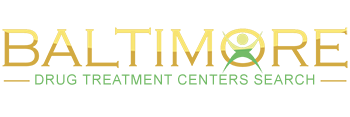Relapse Prevention Programs in Baltimore, MD
Addiction treatment is often quite misunderstood by the general public, especially when it comes to the possibility of suffering a relapse. Relapse prevention programs are a part of any top-quality addiction treatment plan. The reason that relapse prevention programs are so important has to do with the fact that even after successfully completing addiction treatment, somewhere between 40 and 60 percent of people relapse, according to the National Institute on Drug Abuse.
These large numbers of recovering addicts suffering from relapse is troubling, and the proper use and understanding of relapse prevention programs can do much to curtain these issues. If you are currently looking into drug treatment options, make sure your choice includes extensive relapse prevention programs, such as those offered in connection with Baltimore Drug Treatment Centers. This will help to ensure that you have the greatest chance possible at successful long-term recovery.
How Relapse Happens
There are two different situations that a person can find themselves in when they are struggling with their addiction after treatment is complete. They may experience what is known as a lapse in which they have a single slip and use or consume the substance they are addicted to again. While a lapse is certainly problematic, it does not necessarily mean that the person has returned to their compulsive substance abuse behaviors.
Relapse, though, is much more complicated in nature. When a person relapses, it occurs in stages or steps. These stages proceed in chronological order and may occur over the course of weeks or months, or they may occur very rapidly. The three stages of relapse are (in order) emotional, mental, and physical relapse. Emotional relapse occurs when a person becomes engrossed in negative emotions and behavioral patterns that could trigger them to turn to substance abuse. This can include something as simple as a disregard for personal hygiene or be more complex such as depression or excessive anxiety.
After emotional relapse comes mental relapse. When a person mentally relapses, they being to consciously consider resuming use or abuse of the substance they are addicted to. They may obsess over how “good” it used to feel to abuse the drug in the past or may come up with detailed plans or scenarios to obtain the substance and resume use again. During this stage, secretive and more problematic behaviors associated with the individual’s addiction will more than likely begin again. Physical relapse, of course, occurs when a person resumes their compulsive substance abuse and associated behaviors.
How Relapse Prevention Can Help
Relapse prevention programs are designed to first build awareness among recovering addicts of the possibility of relapse and all that it entails. If a person knows their own triggers intimately and is aware of every sign of relapse at any stage of the process, they are less likely to move through all three stages. The goal is for the recovering addict to be able to consciously make the changes they need to stop relapse in the earlier two stages.
These programs also provide recovering addicts with resources that they can access to deal with relapse, like support groups, therapy, and peers, as well as help them to develop strategies to redirect and change feelings and behaviors. Something as simple as journaling or going to a yoga class when a person is feeling extremely stressed out can stop that stress from ever causing a person to resume substance abuse.
Baltimore Drug Treatment Centers can provide you with connections to relapse prevention programs to help you recover from your addiction and give you the tools for long-term abstinence and success. Just give us a call today at (410) 260-0350 for more information.

